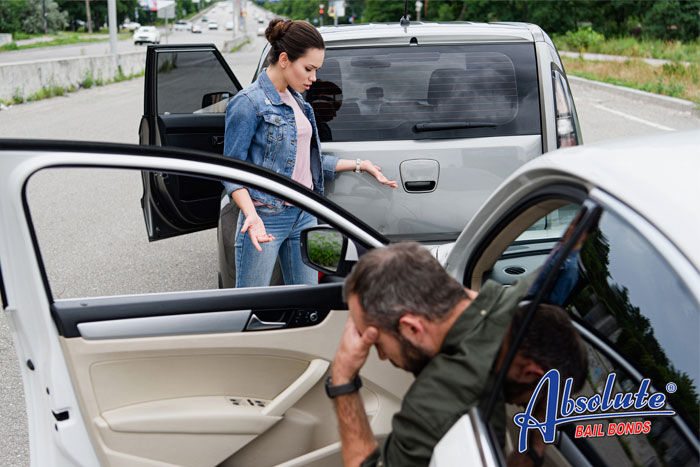
What to Do When You’ve Been Involved in a Car Accident
Car accidents happen, and even when you do everything in your power to drive defensively and avoid a collision, there could be a time when despite your best efforts you find yourself involved in an accident which is why now is the best time to learn the proper way to respond.
Secure Your Car
The first thing you need to do is to make sure your car is secure. In this case, it means shutting off the engine and getting out of the car as quickly as possible. While car accidents rarely cause fires, there’s always a chance that a random spark could ignite some gasoline. Shutting off the engine is the best way to reduce the risk of a post-accident car fire.
Even if you’re too severely injured to leave the car, try to turn your vehicle off.
Perform a Wellness Check
Take a quick moment to make sure that neither you nor any of your passengers are injured. Sorting out the details of the accident is important, but not nearly as important as making sure everyone is in one piece and not in immediate need of medical attention.
Call 911
Rather than trying to reach the police directly, you should call 911. The dispatcher will send the nearest police officer to the scene as well as the EMTs if you say that someone sustained injuries. Don’t worry that more than one person has contacted 911. If there are multiple calls about reporting the same accident, the dispatcher will deal with the issue.
Try to stay calm and keep your voice understandable while you’re on the phone with the 911 dispatcher. The information they need is how many vehicles were involved in the accident if there are any apparent injuries and the accident location. The calmer you remain, the easier it will be for the dispatcher to do their job properly and to get help to you as quickly as possible.
Create a Record of the Accident
It’s not a bad idea to create a record of the accident. Yes, the police will create a report, but having your own record adds more credibility to your version of the events when you file your insurance report. More importantly, creating your own record of the incident also helps cement details surrounding the accident into your memory, which makes it easier to answer any questions the police or insurance company will have.
File a Claim
Once you are satisfied that you’re safe, you need to let the insurance company know what happened. They will advise you on the best way to proceed.

Bringing Gifts to Prison
Just because a loved one has been sent to prison, it doesn’t mean you stop caring for them. When someone has been arrested many people feel that in addition to visits, the best way to let their loved one know that they’re still important is by sending gifts and other surprises.
While it’s easy to understand why you would want to send gifts to your incarcerated loved one, you should know that it’s not as simple as you may think. Prison security is always a concern, the people running California’s prisons are more concerned than ever before about the possibility of drugs and other contraband being introduced to the prison system. To prevent this from happening, people are not allowed to simply send packages to the prison.
Packages, which are referred to as quarterly packages, can only come from approved vendors. The prison will not accept any package that has been mailed directly from a friend or family member. While this makes it a little harder for you to send gifts to your loved one, it actually makes things a little easier on the prisoners. Before the California prison system flat-out banned packages that weren’t sent by approved vendors, anytime a prison received a package that contained something they weren’t allowed to have, they had to arrange to have it returned to the sender, on the prisoner’s dime.
Don’t assume that just because packages all have to come from approved vendors that it doesn’t mean you aren’t able to send anything. It simply means you have to go through the vendor. The bad news is that the list of approved vendors isn’t very long, and it doesn’t look like Amazon is on it.
The 2022 list of approved prison vendors include:
- Access Securepak
- 1 Stop Value Pack
- Aramark iCare
- Mike’s Better Shoes
- The Vitamin Outlet
- Union Supply Direct
- Walkenhorst’s
- JPAY
For more information about what you can and can’t send your loved one while they’re incarcerated, you’ll have to speak directly to the prison.
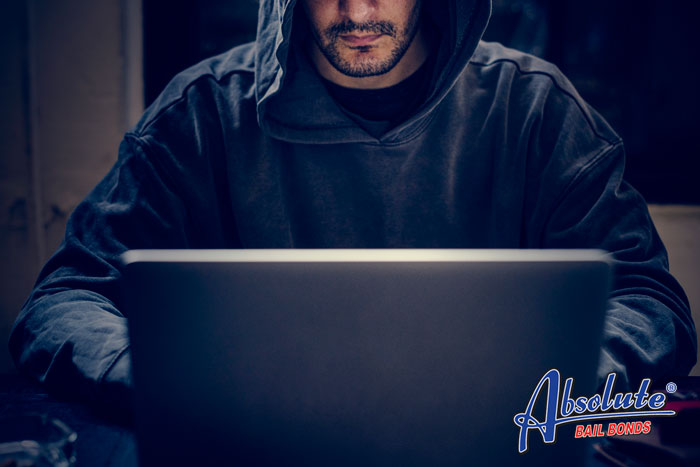
What to Do If You’ve Been Accused of an Internet Crime
In 2018, the Cyber Security Breaches Survey revealed the shocking news that approximately 43% of all businesses fell for some sort of internet crime. The costs associated with these crimes really added up. It’s estimated that in California alone, businesses collectively lost more than $214 million to internet crimes.
And businesses aren’t the only ones who fall victim to internet crimes. Every single day, there are multiple reports of people who lost thousands as a result of some internet crime.
We get so wrapped up in how victims handle internet crimes that we forget there is someone on the other side of the crime. Even worse, there are routinely people who are wrongfully accused of perpetuating an internet crime.
The first thing you should do when you’re accused of committing an internet crime is following police instructions. If you’re getting arrested, don’t try to resist. Resisting arrest not only makes you appear guilty, but it can also result in even more charges. When you’re told you’re being arrested for an internet crime, stay calm, cool, and collected.
Don’t say anything to anyone about the alleged internet crimes unless your criminal defense attorney is with you. In addition to making sure both your civil and legal rights are being upheld, your lawyer will stop you from inadvertently saying or doing something that could get you into even more trouble or that could be used to mount an even stronger case against you.
If you’ve been falsely accused of committing an internet crime, don’t fall for the temptation of accepting a plea deal because you’re tired of all the legal drama or have gotten scared because of what the police and the prosecuting attorney are telling you. As soon as you accept a plea deal, you will have a criminal record that will haunt you for the rest of your life. Trust your lawyer to get the charges dropped.
If you have committed an internet crime and are convicted, you should know that the details surrounding your case determine whether you’re convicted of a felony or misdemeanor. If you’re convicted of felony internet crimes, you could be fined up to $10,000 and sentenced to spend up to 20 years in prison. If you’re convicted of misdemeanor internet crimes you’ll only face a fine of about $1,000 (plus court costs.)
In many misdemeanor cases, the judge opts for probation instead of actual jail time, especially if this is the first time you’ve been in trouble with the law.
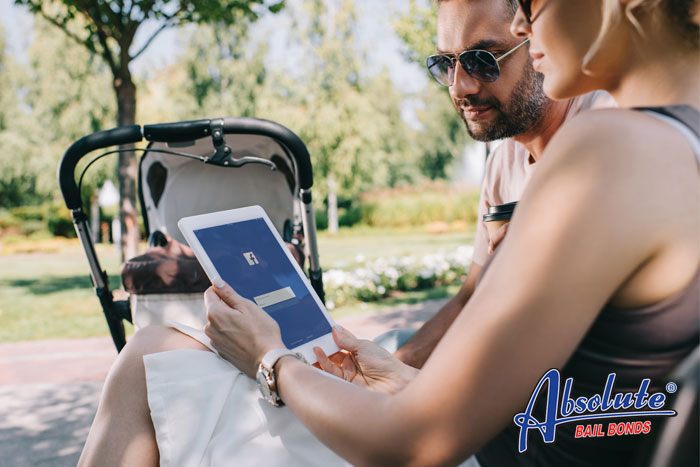
4 Facebook Scams You Should Know About
Most of us spend a surprising amount of time on Facebook. We love posting about the exciting things taking place in our lives, we enjoy looking at the photos loved ones share, and we often treat it like an interesting party line that provides a legal way to spy on the lives of others. We seldom stop and think about how dangerous Facebook can be, even though we routinely hear about friends whose accounts have been hacked or who have encountered a Facebook scam.
While you don’t have to completely stop using Facebook, you’ll get more out of the social media giant if you are aware of the most popular Facebook scams and know how to identify and avoid them.
Phishing
Phishing on Facebook is just like other forms of internet phishing, it just takes place on Facebook. The way it works is someone creates a fictitious Facebook account that suggests they offer a service or own a business. When you express interest in the business/service, the mastermind behind the account steals a great deal of your information, including your Facebook password, and uses it for personal gain.
The best way to spot a Facebook phishing scheme is by looking at the website you are directed to. If the URL has anything other than facebook.com on it, it’s a scam and you need to exit it and clear your browsing history right away.
Counterfeit Products Promoted on Facebook Marketplace
Facebook marketplace has become a popular place for people who have cheap products to make a quick buck by promoting them as if the product was name brand or high quality. The best way to avoid falling into this trap is to study the pictures closely and read the seller’s reviews. If the product looks suspicious or there are many bad reviews, move away from that seller and look for something else to purchase.
Bogus Job Scams
Even though Facebook isn’t the first place most people look when they’re hunting for a new job, there are some legit job opportunities posted on the social media site. The problem is that there are also some surprisingly convincing bogus job scams available on Facebook.
The purpose of the bogus job scams is the same as other scams, the person behind the scam wants to extract specific information from you that they can use for their own gain. The best way to protect yourself from a bogus job scam found on Facebook is to never give away any personal information, change your password each time you message the person responsible for the job listing, and carefully research the company that allegedly posted the job.
The Scam Involving Gift Cards
The general rule of thumb is that if something sounds too good to be true, it probably is. That’s certainly the case with many of the gift card offers floating around Facebook. One of the reasons so many people are conned by fake gift card scams is that the person behind the scam hacks an account and makes it appear like the offer is coming from a loved one. And the wording is both persuasive and authentic.
The scam is twofold. Since you’re asked to click a link and provide information about yourself, the person behind the scam collects information from you that they can use to help steal your identity. They also ask you to share the post, making it possible for them to connect with your Facebook friends so they can run the gift card scam on other people.
The best way to avoid getting drawn in by a Facebook scam is to limit your social media actions to dealing with people you know well and always confirm their identity before clicking on any links or secondary accounts.
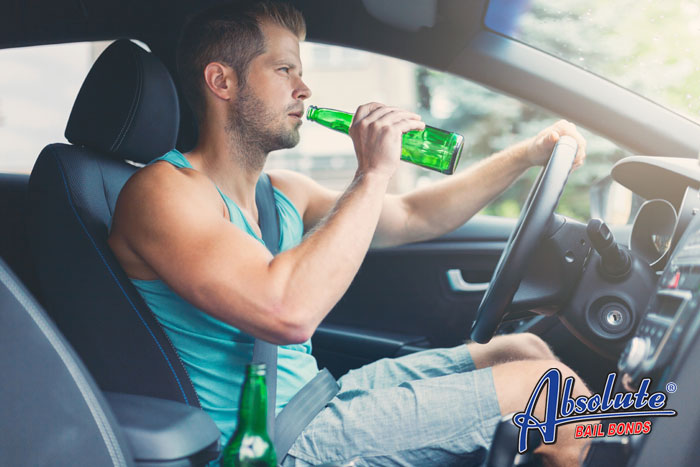
Driving Drunk On Halloween in California
It’s Halloween which means Halloween parties. The high volume of parties means that the police will be out and they will be specifically looking for drivers who are under the influence and behind the wheel. If you are caught driving drunk on Halloween, the consequences will be severe.
Getting pulled over for drunk driving on Halloween in California isn’t the same as being pulled over for speeding. You won’t be let off with a warning. You won’t be issued a simple citation. If the officer suspects you were drinking, the first thing they will do is a breathalyzer test. This is a humbling experience. Don’t assume that even though you’re only close the legal limit (0.08% BAC) that you’ll be free to go. If you’re close, the officer will arrange to have another test done because it can take a little while for the alcohol to really hit your system.
The second thing that will happen is your arrested. While the Halloween party you just left was likely fun spooky, jail is spooky for real. After answering a series of questions, you’ll be fingerprinted and photographed before being put in a jail cell. Don’t assume you can skip any step. In California, you won’t be released to your family until you’ve sobered up. Depending on how drunk you were when you were pulled over and how recently you had your last drink, you could be in the cell for several hours.
The horror doesn’t end after Halloween. Once you’ve sobered up, you’ll realize just how much your life is about to change. Getting arrested was simply the first step. When you decide to drive drunk on Halloween in California, you’ll be charged with a misdemeanor, which will be on your permanent police file.
If your drunk driving on Halloween is the first time you’ve ever been convicted of drunk driving, the maximum amount of time you could be sentenced to jail is six months, and that is only part of what the sentence could be. The judge can also order you to pay a fine of $390-$1,000 dollars (plus additional court costs). You can also have your driving privileges revoked for at as long as a one year.
Avoiding a charge of drunk driving on Halloween in California isn’t difficult. You can either make sure you have a designated driver (or arrange for a ride share/taxi) or you can celebrate the holiday without drinking.
Stay safe and make smart choices this Halloween!

What Happens When You’ve Been Arrested: The Booking Process
It doesn’t matter if you’ve been caught shoplifting, where driving while intoxicated, or have been arrested because evidence suggests that you’ve committed a crime, the entire arrest process starts with you being booked.
The reason for being booked is to create a formal record of your arrest. It’s called booking, because back in the day when jails didn’t have computers, the booking officer entered everything into the big book of the jail’s records and the phrase has stuck, even though everything is currently entered into a computer database.
The amount of time it takes you to be formally booked really depends on how busy the jail is. If it’s a slow day, you could be booked and processed in less than an hour, but if it’s a busy night, it could take hours to complete. If it is a busy night, it’s in your best interest to stay calm and not complain. Getting agitated and rude during the booking process not only looks bad in terms of your case but can also result in additional charges if you get violent and start to rant and rage.
There are specific steps that the booking officer goes through while adding your record to the computer.
Collecting Your Information
One of the first things the booking officer will want to know is your full name, your address, and if you have any identifying features. This is not a good time for you to be sarcastic. Answer their questions quickly, honestly, and calmly. During this stage, you will also be asked to provide emergency contact information.
Taking Your Mug Shot
The next step will likely involve having your mug shot taken. Police rely on mug shorts of a variety of reasons, including:
The booking officer will explain how the mug shot process works. This should only take a few minutes to complete.
Removing Your Personal Items
You can’t bring personal items like belts, wallets, cell phones, and jewelry into the cell when you’re arrested. The booking officer will take these things and log them into their records. When you’re released on bail, you’ll get them back. As hard as it is to pass your personal possessions over, remember that the officer is only doing their job and getting angry will only make the entire situation worse. This is frequently the stage that can take the longest amount of time, especially if you had a great deal on your when you were arrested.
In addition to remaining calm and compliant during the booking process, you also need to not say anything that could potentially be used against you in your case while you’re being booked. The best policy is to not speak unless you’re being asked a direct question that relates specifically to the booking process.
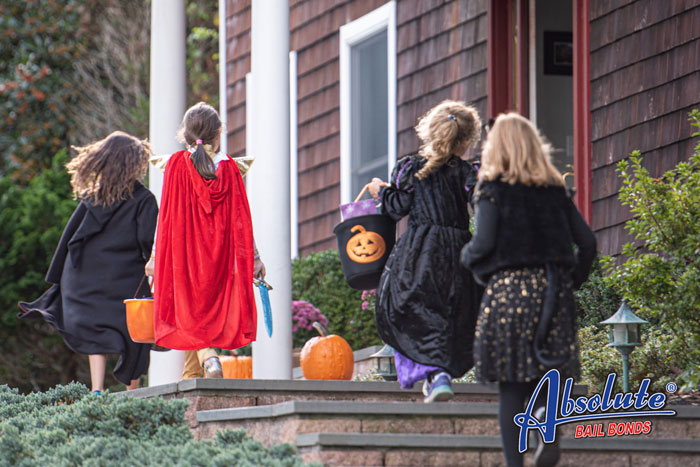
How to Confirm that Candy is Safe After a Fun Night of Trick-or-Treating
It’s easy to understand why parents are fearful. Kids are going door to door and stocking up. Some of the kids will often eat their bounty as they walk from one home to the next. All the kids know is that they are getting a rare, sugary treat. The idea that it could be dangerous doesn’t even cross their minds.
Parents know that while the vast majority of people who answer their door on Halloween night and pass out candy are good and decent people who wouldn’t dream of handing out toxic candy, they also know that that there’s always a chance that their child could cross the path of a dangerous psychopath who doesn’t like kids.
The good news is that there are some steps parents can take to make sure their child only enjoys safe candy this Halloween.
The first thing you need to do is commit yourself to watching your child like a hawk. Don’t assume that just because you told your child that they weren’t allowed to eat the candy until you have a chance to inspect it that they’ll listen. Stay close to your child and make sure they aren’t sneaking treats. This is why it’s good to have a couple of adults accompanying your child while trick-or-treating. The more adult supervision there is, the less likely it is that your child will take advantage of you looking away for a moment and grabbing a piece of candy.
As soon as possible, take a moment to inspect the candy. Commercially wrapped candy bars are great because it’s easy to inspect the packaging for signs of tampering. While broken seals and holes in the package don’t necessarily mean that the person who handed out the candy laced it with something harmful, packaging does occasionally become damaged, the damage does mean you can’t let your child have it.
If the candy’s packaging is damaged, make a note of the address, keep the candy away from your child, and bring the candy to the police for testing. Do not confront the person who passed out the candy.
Another way you can make sure your child enjoys Halloween but doesn’t end up with tainted candy is avoiding the act of going from one strangers door to another. Instead, look for businesses that have collaborated and put together a trunk and treat event for the kids. These events have turned into a wildly popular solution for parents who want minimize the risks connected to trick-or-treating but who also want their kids to enjoy Halloween.
Your third option is to limit your trick-or-treating to the homes of trusted family members and friends who you know will only hand your child candy that’s safe.
Have fun and stay safe this Halloween!

Teens Need to be Smart While Partying This Halloween
Everyone knows that the best parties happen in October. There’s something about the combination of extreme sugar, spookiness, and the strange cheerful zaniness of the season that makes the parties even more memorable. It’s why so many teens spend days learning about what Halloween parties are taking place.
While there’s nothing wrong with going out and having a great time at Halloween parties, teens do need to be smart and make sure they’re not breaking any laws while they have the time of their lives.
The first thing to remember is that parties aren’t a secret like they once were. Thanks to teens using social media sites to plan and discuss parties, it’s easy for the police to use the same social media sites to gain information about the party. If they get the impression the Halloween party is going to have a lot of drug use or underage drinking, it’s reasonable to assume that they could show up at the party site and start making arrests.
Even if the cops don’t learn about the Halloween party via social media, if someone complains about the noise or something else that’s happening, the police will put in an appearance. While they are at the Halloween Party, they will be actively looking for intoxicated teens.
This year, like previous years, the police and courts are not fooling around when it comes to underage drinking. It doesn’t matter that it’s Halloween and that you only had one beer to celebrate. If they catch you drinking, you will face steep consequences that will have an instant impact on your life and your immediate future.
Teen who are caught drinking at Halloween parties will:
- Lose their driving privileges for as long as a year if they’re caught driving with anything more than a .01 blood alcohol level.
- Be fined up to $250 (plus court costs).
- Be required to participate in drug and alcohol counseling.
- Be required to complete 24-32 hours of community service.
If you’re going to a Halloween party, it’s important that you’re aware that even if you’re not actively drinking when the police knock on the door, you could still be in trouble. Just by holding a drink in your hand, you can be charged with being in possession of alcohol while a minor.
If you’re a teenager, the best way to enjoy the holiday without potentially getting into trouble with the law is to stay away from alcohol and any illegal substance.

Driving Without Auto Insurance in California
It’s expected that if you’re going to own and operate a vehicle in California, it’s properly insured. The amount of insurance you have that covers your own car is usually left up to you, but the state requires that you at least carry limited liability insurance so anyone else who is involved in the accident is protected.
The issue of car insurance in California is addressed in Vehicle Code Section 16029.
One of the interesting things about California is that while most drivers have auto insurance, other forms of financial responsibility that are legally acceptable while operating a vehicle in California include:
- A self-insurance certificate that’s issued by the DMV
- A surety bond for $35,000
- Proof of a cash deposit with the DMV of $35,000
If you’re pulled over and can’t present the traffic officer with one of these things, you are driving without insurance.
The first time you’re caught driving without insurance, you’ll receive a citation and have to pay a $100 fine. Additional fees connected to the citation mean your out-of-pocket expenses will be $450, and that’s just for not having insurance. It’s likely that whatever prompted the officer to pull you over, such as running a stop sign or speeding, will also result in a second costly infraction.
The second time you’re caught driving without insurance, the infraction increase to $200-$500, and in some cases, the additional total fees and penalty assessments can add up to as much as $2,500.
The ticket and massive penalties probably won’t be your only problem. Since an uninsured vehicle can’t operate in California, it’s highly likely that the police will have your car impounded. The only way you’ll get it back is if you pay the towing bill and impound fees. Unless you’re planning on having the vehicle towed back to your house, the impound lot will request to see your proof of insurance before the release of your vehicle.
Getting a ticket for not having auto insurance when you’re pulled over is bad, but it’s nothing compared to what happens if you’re in a car accident when you don’t have insurance. Not only will you be issued an expensive ticket, but it’s also highly likely that you’ll be named the defendant of a civil suit. Since you didn’t have any insurance at the time of the accident, if you lose the civil case, you’ll be responsible for paying the entire settlement.
Yes, car insurance is expensive and it can be hard to fit into the monthly budget, but considering the possible consequences, it’s something you should have if you’re driving.


